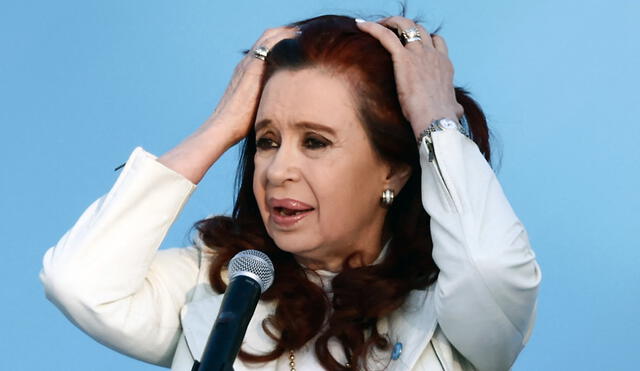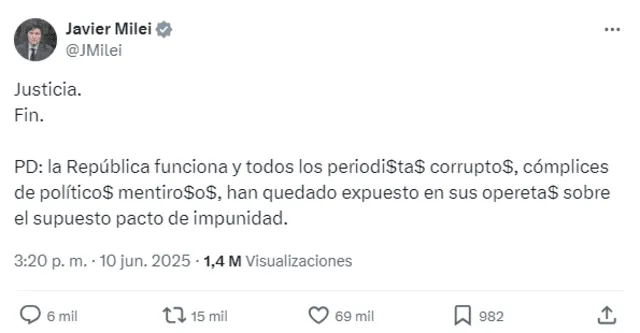Cristina Kirchner will go to prison: Argentine Supreme Court upholds six-year sentence for corruption
Argentina’s Supreme Court upholds a six-year prison sentence and lifetime ban from public office for ex-president Cristina Kirchner over corruption in public works.

The Supreme Court of Argentina voted unanimously to uphold the six-year imprisonment and lifetime disqualification from public office against former President Cristina Fernández de Kirchner in the Vialidad case. The ruling comes for the unorthodox awarding of 51 government public work contracts to businessman Lázaro Báez while she was in office in the Santa Cruz province. Also, the highest court decision foils her bid to stand for provincial deputy elections next month in September.
The ruling is a moment of history within the country's new politics, potentially the last for the political career of one of Kirchnerism's most influential leaders. Although as a result of her high age (72) she would not be forced to serve jail time, she will be legally disqualified from public service. The ruling has had major political implications for both the opposition and government.
Kirchner blasts Court as Milei hails Justice in corruption ruling
The Vialidad case concerned a corruption scandal on public works whereby it was maintained that multimillion-dollar contracts were channelled towards Báez, a firm associated with Kirchner. She has insisted on her innocence and cried judicial persecution against her, seeing the proceedings as a "lawfare" strategy to politically marginalise her. "They are three puppets who react to natural leaders far more senior than them," the former president said referring to the Supreme Court judges. "This is a triumvirate following a script from above, let's not deceive ourselves."
President Javier Milei from Israel delivered his first response to the sentence. "The Republic is functioning, and all the corrupt journalists, enablers of lying politicians, have been caught out in their operettas on the supposed pact of impunity," he posted on social media under the caption: "Justice. The End." The sentence was received as outright solidarity with the Supreme Court and a stern warning to the opposition and oppositional media.

Javier Milei speaks out on his X account after the sentence of Cristina Fernández de Kirchner was confirmed. Photo: Javier Milei X account
Kirchner ruling triggers protests and political tensions in Argentina
The ruling stoked a tide of reactions: while Milei welcomed the verdict as a triumph for justice, unionists and Kirchnerist protesters marched through the streets in opposition. The environs of the courts were the setting for protests, flags, and slogans denouncing the Court and supporting the ex-president. Political unease mounted on the streets and social media.
Since Peronism, politicians like Axel Kicillof, Sergio Massa, and Alberto Fernández denounced the judiciary's ruling and defended and severely criticized Cristina, saying that it is against democracy and the right to political participation. While unity is expressed in words, the prohibition of Cristina opens up a leadership vacuum within the movement, which could accelerate internal quarrels. Meanwhile, Milei's government is strengthened by this ruling, presenting it as a sign of the end of impunity.













